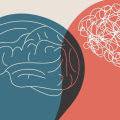Mental health counselors help patients develop skills and strategies to address issues such as parenting and professional skills; problems in adolescent and family communication and functioning; relationship, marital and relationship problems; and preventing the onset of or Reappearance of alcohol and toxic substances abuse.
Mental health counselors can help treat mental
health conditions and other sources of distress, such as relationship problems or grief. They do this by providing people with a space to explore their feelings and teaching them beneficial skills and coping strategies. Health experts are increasingly realizing that mental health is part of a person's overall health and well-being.Mental health counselors work with individuals, families and communities to treat problems related to behavior, cognition and emotions. Mental health counselors can receive third-party reimbursement for the diagnosis, evaluation and treatment of psychological conditions, often at a cheaper price than other health professionals. In addition to formal education and licensing, you must have certain personality traits if you want to be successful in the field of mental health counseling. People who frequently feel anxious, scared, or depressed should seek the support of a mental health professional.
Mental health disorders affect approximately one in five Americans, or about 51.5 million people in this country alone. The Bureau of Labor Statistics (BLS) uses a category called Counselors, All Others to collect statistics on mental health professionals employed by individual and family service organizations, state and local governments (including elementary and secondary schools), and the offices of others health professionals. More and more people are expected to seek mental health and addiction counseling in the coming years, increasing demand for workers. If you feel called to serve others as a mental health counselor, it's important to understand the qualities of a good counselor before earning your degree as a counselor.
Mental health counseling isn't just for people who have mental health problems, but also for anyone who has mental health concerns at any given time. In the United States, approximately one in four adults has a mental illness at any given time, and research shows that about 50% of adults will have at least one mental illness in their lifetime. If you're interested in becoming a mental health counselor, it's important to consider both the potential benefits of the career and some of the potential drawbacks.
Psychological or personal mental health counseling
provides you with an opportunity to talk about social, emotional, or behavioral problems that cause you concern or interfere with your daily activities.People may be able to access mental health counseling through health insurance, government plans, or low-cost programs. You can also discuss your symptoms and needs with your primary care doctor, who will then refer you to a mental health counselor, psychologist, or psychiatrist. Psychiatrists who offer their services online help diagnose, treat and prevent mental health conditions online. Mental health professionals who can prescribe medications include psychiatrists and psychiatric nurses.
Depending on the institution awarding the degree, the curriculum may culminate in a master's degree and the appointment of a Licensed Mental Health Counselor (LMHC) instead of MSW. .






